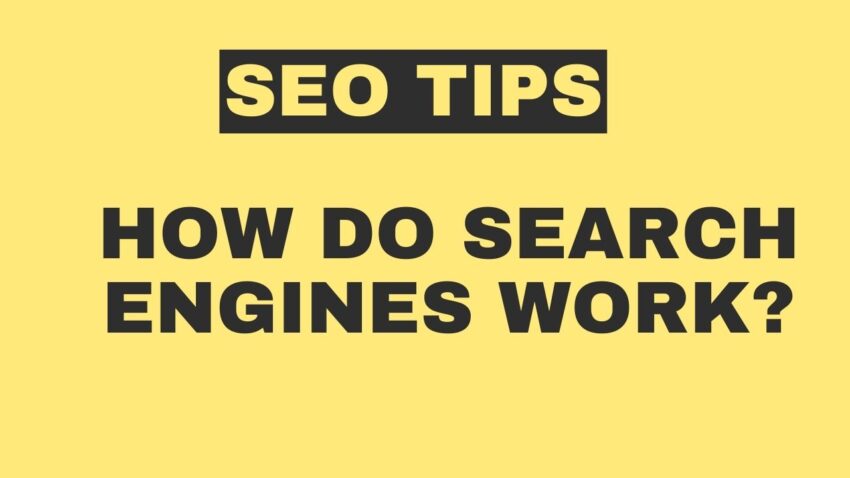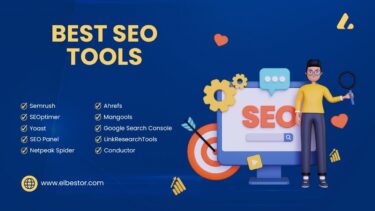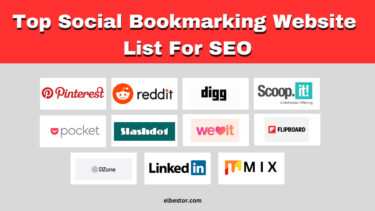SEO stands for Search Engine Optimization and is the roadway to get your content on Google search engine by following up the procedure of Crawling, Indexing, and last but not least writing SEO-optimized content.
But, just following up on a couple of Seo’s Do’s and Don’t make us visible on Google Search Engine (GSE). Don’t we need to know a little bit ahead about the world’s largest search engine platform i.e., Google? How do search engines work? More specifically, how Google Search Engine work on content? How does it follow the procedures of crawling and indexing?

In this comprehensive Beginner Guide to SEO, we will deeply examine the behind-the-scenes of how Search Engines Work. Stay tuned because soon we’re going to uncover the secrets behind the process of working a search engine!
Contents
- 1 What is a search engine?
- 2 What is the search algorithm?
- 3 How Search Engines Work?
- 4 What goal does a search engine carry out?
- 5 What is crawling in search engines?
- 6 What is Processing and rendering in search engines?
- 7 What is indexing in search engines?
- 8 What are the key ranking factors of Google?
- 9 How do search engines personalize results?
What is a search engine?
A search engine is like a dictionary or a digital library with infinite storage which collects the webpages from online sources to store with itself to provide an exact and better result of a query.
What is the search algorithm?
A search algorithm is designed with rules, determined by the search engines to find out the best results among the billions of duplicate results for the given query.
How Search Engines Work?
Search engines are like a dictionary of keywords, like a dictionary contains the meaning of a particular keyword in that same way, search engines also store the result for a specific query. More specifically, search engines send out bots also known as spiders, to visit a vast number of web pages. These spiders visit webpages across the internet, jumping from one link to another link, and discovering new pages. Once they find a page, they add it to a list known as the indexing process. When you search for something, the search engine looks at this indexing list to show you results.
What goal does a search engine carry out?
Every search engine works to try to give users the most suitable answers. This is one way they get more people to use them.
What is crawling in search engines?
A crawler also known as Googlebot and spider, visits each web page on the internet to collect the URLs and make a collection of valid URL addresses to send it for indexing.
What is Processing and rendering in search engines?
The only aim of the crawled pages is for Google to carry out a mission of gaining a deep understanding of the pages’s information. To achieve this, Google renders the page, which means it runs the page’s code to figure out how it appears to users. Essentially, it’s like Google looking behind the scenes to see how the webpage is put together.
What is indexing in search engines?
Indexing is like organizing a giant library of web pages. When Google or Bing processes information from the pages they’ve looked at information from the crawled pages and add it to their search index. Think of the search index as the list that helps you find books in the library. If your website isn’t in this index, it’s like having a book that’s not listed in the library list—people won’t be able to find it when they search.
What are the key ranking factors of Google?
The exact key ranking factors of Google nobody knows yet, because Google never announced it. But still, there are a couple of common key factors that are taken into consideration by Google.
1. Backlinks: Backlink is the simple step to link your website to another website. Briefly, backlink is the process of getting your web pages linked to the other website’s pages. It is considered to be the best ranking factor by Google, especially if the backlink is provided by the strongest domain and good well-positioned website on search engines.
2. Relevance: Relevance is all about how helpful a search result is for someone looking for information. When somebody searches on Google, it uses various methods to figure out which results are most relevant, like:
- Keywords: At the simplest level, Google checks if a webpage contains the same words as your search query. If it does, that page is considered relevant.
- Interaction Data: Google also pays attention to how people interact with search results. If lots of users find a particular page useful (by clicking on it, spending time there, or sharing it), Google takes that as a sign of relevance.
3. Page speed: Page speed matters when it comes to how well a webpage ranks in search results, whether you’re using a computer or a mobile device. But here’s the twist: it’s more like a “bad behavior” factor than a “good behavior” one.
- Negative Impact: Slow-loading pages get penalized. If your website takes forever to load, it can drag down your ranking.
- Positive Impact: On the other hand, super-fast pages don’t get a huge boost. It’s more about avoiding the negative impact than gaining extra points.
4. Mobile-friendliness: Mobile-friendliness means that websites that work well on mobile phones and provide a good user experience tend to perform better in Google’s search results. So, if you want your website to rank well, it’s crucial to ensure it’s mobile-friendly.
How do search engines personalize results?
There are a few components that are considered to be major factors in personalize the results on Google search engine and other too like Bing. So, let’s discuss them one by one.
1. Location: When you search for something on Google, like “cricket stadium near me,” Google takes into account your location. This means that the search results you see are customized based on where you are. So, if you’re in New York, for example, the results will show a “cricket stadium” in or around New York.
2. Language: Google understands that it’s not useful to display search results in English to French-speaking users. Instead, it shows content that specifically belongs to the language spoken by the user. So, if you’re searching in French, Google will try to provide localized versions of relevant content in French.
3. Search history: Google keeps track of your actions and the places you visit so that it can provide you with search results that are especially based on your regular activities and preferences. This personalized experience is designed to make your searches more relevant. However, Google allows every individual to opt out of personalized tracking.





